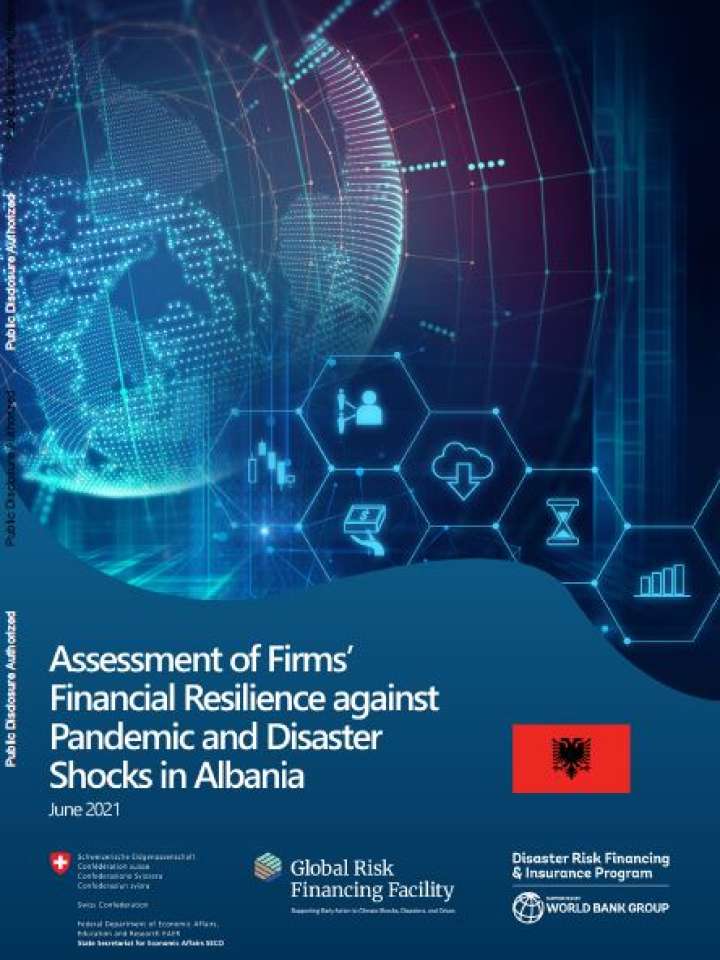Assessment of firms' financial resilience against pandemic and disaster shocks in Albania
For this report the World Bank made an assessment of 10,000 formal firms in Albania, using the country’s disaster risk profile and the COVID-19 shock as assumptions for potential future shocks. The assessment shows that, under the impact from pandemic and disaster shocks, and in the absence of any government interventions, firms are projected to become less liquid, more leveraged, and less profitable. Under compound shocks, the number of firms that do not have the ability to cover short-term debt is likely to increase three times: from 2,500 firms under baseline to more than 7,000 firms. In addition, firms’ profitability is projected to fall significantly: the share of profitable firms may decline from 57 percent at baseline to 23 percent under a pandemic and national-scale disaster.
Over the period 2019–21, Albania had to confront dual shocks: the 2019 earthquake and the COVID-19 pandemic. Both had sizable impacts on the country’s economy. The COVID-19 pandemic took a heavy toll on an economy already affected by the earthquake in 2019. Key sectors were put in lockdown in the second quarter of 2020, and the economy suffered a severe contraction of -10.6 percent in gross domestic product (GDP). The pandemic hit the travel, tourism, and other services sectors first; then mobility restrictions and post-COVID-19 behavior changes affected firms’ supply and demand. Given the structure of the economy, the associated loss in sales and profits had a disproportionate effect on small and medium enterprises.
Explore further
